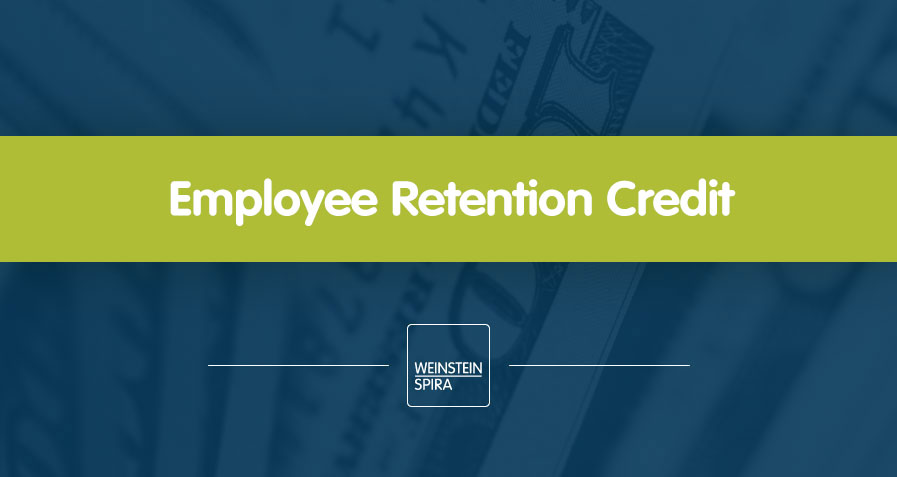Updated in March 2022
The Employee Retention Credit (ERC), established by the CARES Act, provides a dollar-for-dollar credit against employment taxes to qualifying companies impacted. The credit availability extends through September 30, 2021 for most taxpayers (the credit is available after September 30, 2021 under special circumstances). The Consolidated Appropriations Act (CAA) also expands the availability of the ERC to companies that received Paycheck Projection Program (PPP) loans. Below are the main provisions of the ERC:
| 2020 Credit:
The refundable tax credit is equal to 50% of employee compensation (inclusive of health insurance) up to $10,000 per employee per year for wages paid between March 13 and December 31, 2020. Total credit available is $5,000 per employee. |
2021 Credit:
The refundable tax credit is equal to 70% of employee compensation (inclusive of health insurance) up to $10,000 per employee per quarter through September 30, 2021. The total credit available for 2021 is $21,000 per employee. |
| Determining Eligibility for 2020:
Employers who 1. Have 100 or fewer full-time employees in 2019, and 2. Carried on a trade or business during 2020, and a. Had business operations (fully or partially) suspended due to governmental orders limiting the entity’s commerce, travel or group meetings, OR b. Experienced a reduction in gross receipts of more than 50% for a calendar quarter in 2020 compared to the same quarter in 2019. (Once gross receipts exceed 80% year-over-year the credit is no longer available.)
|
Determining Eligibility for 2021:
Employers who 1a. Have 500 or fewer full-time employees in 2019, or 1b. Has greater than 500 employees and paid wages to employees for time they are not providing services and 2. Carry on a trade or business during 2021, and a. Have business operations (fully or partially) suspended due to governmental orders limiting the entity’s commerce, travel or group meetings, OR b. Are experiencing a reduction in gross receipts of more than 20% when compared to either 1) the same quarter in 2019 or 2) using the alternative quarter election for 2021 which uses the preceding quarter’s gross receipts when compared to the same quarter of 2019. c. Please note that there are additional opportunities to qualify for specific scenarios i.e. new businesses or acquired business. |
| Claiming the credit for 2020:
Form 941 Quarterly Employment Tax Return |
Claiming the credit for 2021:
Form 941 Quarterly Employment Tax Return |
The ERC is now available even if you have a PPP loan:
Under the CAA, Companies who received a PPP loan can also claim the Employee Retention Credit. Previously, under the CARES Act, companies that received PPP loans were not eligible to claim the credit. Eligible companies may claim the 2020 ERC retroactively.
Qualifying wages are used to determine the PPP loan forgiveness and ERC amounts. The same wages cannot be used in the calculation of PPP forgiveness and ERC.
If you already applied for PPP loan forgiveness and you qualify for ERC, there still may be an opportunity to receive the employee retention credit for some of the wages that were reported on the taxpayers forgiveness application.
Tax Treatment:
Tax deduction of compensation (inclusive of health insurance) expense is reduced by the amount of the credit received. This reduction occurs for the tax year in which the qualified wages were paid or incurred.
Please contact Weinstein Spira with specific questions regarding the ERC, the CAA or PPP loans.



